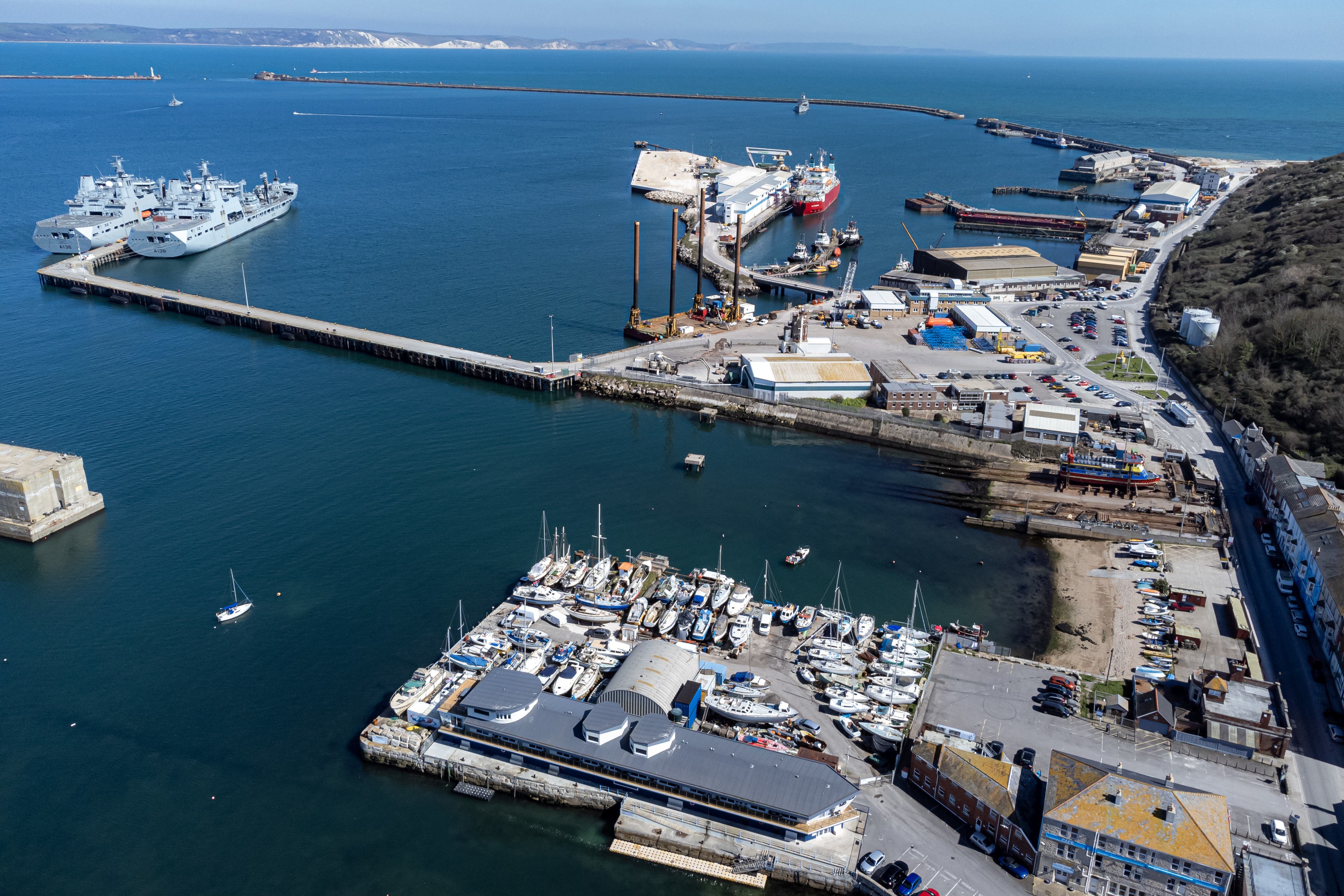Coroner: Marine accidentally drowned during arduous training for elite unit
Royal Marine Benjamin McQueen drowned after he became separated from other military divers during a drill in November 2018.

A Royal Marine drowned in an accident during “arduous military training for operations with an elite unit”, a coroner has ruled.
Benjamin McQueen, 26, was brought to the surface after being separated from other divers during a drill in Portland Harbour, Dorset, on November 14 2018.
He was declared dead after CPR was performed and a post-mortem examination by Dr Mark Ashton on November 25 2018 gave his cause of death as “drowning”, the inquest previously heard.
The vast majority of the Marine’s three-week judge-led inquest at the Royal Courts of Justice in London was held in secret due to national security concerns.
On Friday, Sir Ernest Ryder, acting as judge coroner, said: “On November 14 2018 Benjamin McQueen drowned during a military diving exercise in Portland Harbour, Dorset.
“He experienced complications during the dive.
“He carried out one or more authorised emergency drills which would have rapidly depleted the supply from his breathing apparatus.
“He was recovered from the sea bed from a depth of about 18 metres, but despite appropriate attempts at (CPR) he could not be revived and was declared dead at 7.17pm.”
Mr McQueen became a Royal Marine in September 2010 and later joined 45 Commando in Arbroath, Scotland.
At 19, he was deployed to Afghanistan as part of Operation Herrick 14, for which he was was awarded the Operational Service Medal.
“At the time of his death, Ben had recently become a member of an elite unit,” Sir Ernest said.
In a version of his finding of facts omitting national security-sensitive information, he said the sea was calm on the night of the dive but that “being a dusk into night dive, the underwater visibility was extremely limited”.
Sir Ernest said: “There were two diving tasks being undertaken during the incident dive.
“One of the dive tasks was completed successfully and the divers involved exited the water.
“Ben and the other divers encountered a subsurface obstacle which they sought to negotiate.
“What happened next is the first of a sequence of complications during the incident dive.”
He said the complications were accidental but questioned whether they could have been foreseen.
He added: “First, I find that the lack of requirement for all signals to be acknowledged was a contributory factor in Ben’s death because there was a missed opportunity to abort the dive at an early stage when Ben started to get into difficulties and was not ready to proceed with the exercise.
“Second, Ben had to contend with becoming entangled underwater. This created a difficult situation which he attempted to resolve.
“From this stage onwards, it is clear that events unfolded very rapidly.”
He said the further details of his conclusions have been “set out in my security sensitive findings of fact”.
In a joint statement, Mr McQueen’s parents – Kathy, 64 and Colin, 65, from Southampton – said his “death was preventable”.
They also expressed concern it took about 40 minutes to locate their son and bring him to the surface.
They said: “His life was cut short because he was failed by the very organisation in which he put his trust.
“We do not know exactly what happened in Ben’s final moments, but we do believe Ben’s death was preventable.
“His legacy will be significant changes in dive training and ethos across the forces and an inspiration for others to face their fears as he so courageously did. We do not grieve as those who have no hope because we will see Ben again and his live and death have not been wasted.”
In an additional narrative conclusion, Sir Ernest said: “Ben’s unit collectively took diver safety seriously and conscientiously.”
But he said his death was “contributed to” by factors including “not topping up breathable gas levels between the two dives” and “the lack of a training requirement for all signals to be acknowledged”.
He also called out “inadequate risk assessment for the combined use of the equipment on the exercise which failed to identify mitigating measures for the risks arising – insistence on careful progression; shallower water and ensuring breathable gas was topped up”.
And he said there has been “insufficiently firm instruction on when student divers should surface”.
Sir Ernest intends to issue a prevention of future deaths report to the Defence Secretary calling for the following actions to be taken.
“Carrying spare breathing apparatus cylinders in safety boats in addition to those carried by the stand-by driver” where possible, is the first action he is calling for.
He added: “I am reassured that this appears to be happening in Ben’s former unit but I have concern that this does not yet appear in policy guidance and it is a safety concern that may need to be more widely shared in defence.
“Two, avoiding visits by senior ranking officers or VIP visitors to training courses leading to an acceleration of safety critical training.
“I am reassured that action has been taken in Ben’s former unit such that this should not recur in relation to the relevant diving training, but I have a concern as to whether this has been shared more widely amongst other military units.”
Sir Ernest also wants defibrillators to be available when “particular kinds of diving training are being carried out”.
He said he has seen “detailed evidence from the MoD on the changes made to the relevant aspects of military diving training since Ben’s death”, and added: “It is very clear that there has been a comprehensive and far-reaching review of policies, practices and organisational structures which will have very significantly reduced the risk of future fatalities.”
Bookmark popover
Removed from bookmarks